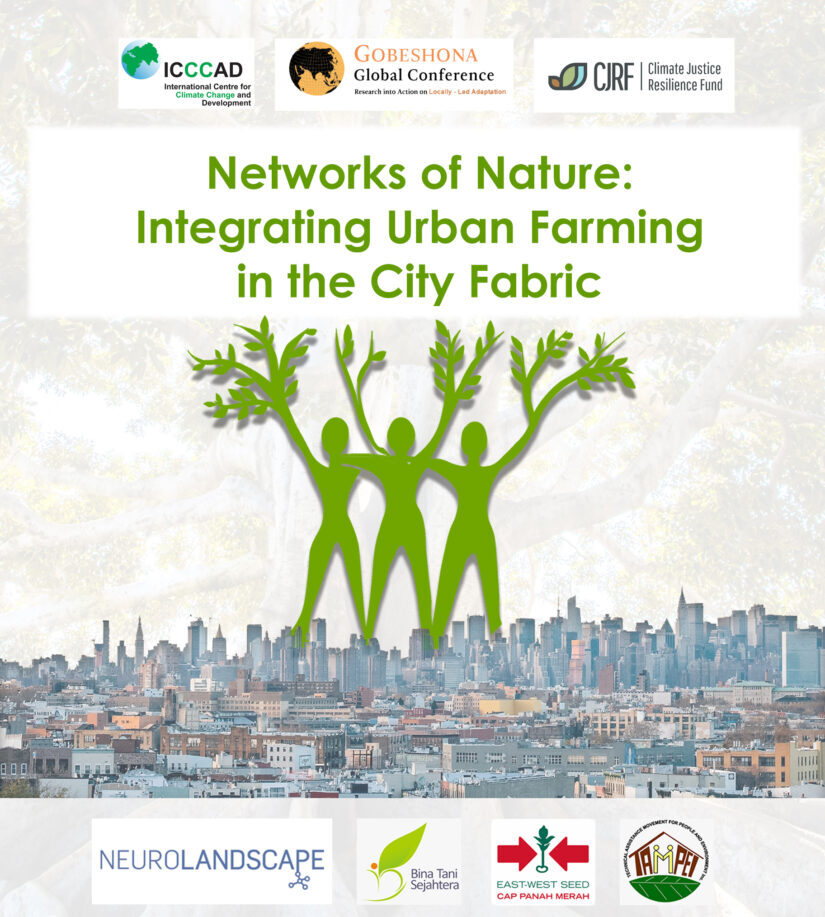Urbanization in developing societies is growing very fast and is mostly associated with growing informal settlement issues exposed to extreme violence, stress and inequality.
Research shows that the bottom-up community activism and regular interactions with nature can develop stronger community bonds and coping mechanisms – very important tools to improve the quality of life in urban informal settlements.
Through this program we strive to bring back the leadership, stewardship and mental well-being to communities around the world which need to become more liveable places. With our research we want to inform the practice and real change happening at these places.


Planting Seeds of Empowerment: Actions to Promote Healthy Communities
10.01.2020 - ongoing
As part of the exploratory phase of this study, it is proposed to investigate any form of bottom-up actions with natural landscapes (i.e., urban farming, community gardens) in both Medellin and Bangladesh slums, in order to understand if these bottom-up actions are a coping strategy to adverse or extreme environments. In other words, understand: 1) how these bottom-up actions emerge; 2) what actors are involved; 3) what place-based strategies are implemented as alternative ways of empowerment during the project’s development; and 4) the potential of such strategies in the health and well-being of the communities and the confounding variables that could foster the positive effects (i.e., stress reduction, community networks, sense of community, sense of belonging, place attachment, the necessity of progress, nature connection).
Related posts:
- Policy Briefs - Urban Health and Wellbeing Programme
- Unravelling links among climate change, poverty and health in slums of Dhaka
- Connecting Social and Urban Studies with Health and Well-being of Communities – Speech at the National University of Colombia in Manizales
- The New Urban Normal_Dr Diana’s speech at TecNM (Mexico)_VIDEO

Networks of Nature: Integration of the Urban Farming into the City Fabric
Timeline: 01.02.2021 - 01.02.2022Budget: US$ 5,000.00
Project Coordinator: Dr Diana Benjumea, Collaborators: Indah Nuryanti - Binatani Sejahtera Foundation, Indonesia, Christopher Ebreo - Technical Assistance Movement for People and Environment, Philippines.
The global environmental crisis has posed several challenges in heavily urbanised cities. Among those are the need to provide food security to all citizens, the need to reduce the pollution caused by urban activities, and urban spaces that contribute to the mental health and wellbeing of people. Urban farming has the potential to help solve some of those challenges, thus providing many benefits to surrounding communities, for instance, access to healthy food, increased physical activity, community development and education, and food system ecology awareness. Nevertheless, although the benefits of urban farming have been widely acknowledged by practitioners and scholars, there are still fundamental gaps in the implementation of urban farming projects in the city fabric. For instance, how to ensure sustainability and active engagement of city dwellers with urban farming initiatives, and to what extent people actually feel empowered or inclined to initiate or develop such initiatives?
Related posts:

Female Actions in the Natural Environment
10.01.2020 - ongoing
